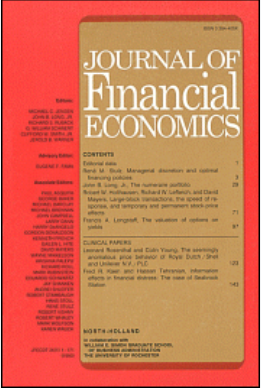监管套利还是随机误差?公平借贷分析中种族预测算法的影响
IF 10.4
1区 经济学
Q1 BUSINESS, FINANCE
引用次数: 0
摘要
在无法直接观察到种族的情况下,监管机构和分析师通常使用基于姓氏和地址的算法来预测种族。在小企业借贷中,监管机构使用贝叶斯改进姓氏地理编码(BISG)算法评估公平借贷法的合规性,我们记录了对美国黑人的巨大预测误差。这些误差使测算出的贷款批准率的种族差异向下偏移了 43%,传统贷款机构与金融科技贷款机构之间的偏差更大。使用自我认定的种族进行监管会增加对黑人借款人的贷款,但也会使贷款流向富裕地区,因为误差与社会经济相关。总之,在政策制定和研究中使用种族代用指标是一项挑战。本文章由计算机程序翻译,如有差异,请以英文原文为准。
Regulatory arbitrage or random errors? Implications of race prediction algorithms in fair lending analysis
When race is not directly observed, regulators and analysts commonly predict it using algorithms based on last name and address. In small business lending—where regulators assess fair lending law compliance using the Bayesian Improved Surname Geocoding (BISG) algorithm—we document large prediction errors among Black Americans. The errors bias measured racial disparities in loan approval rates downward by 43%, with greater bias for traditional vs. fintech lenders. Regulation using self-identified race would increase lending to Black borrowers, but also shift lending toward affluent areas because errors correlate with socioeconomics. Overall, using race proxies in policymaking and research presents challenges.
求助全文
通过发布文献求助,成功后即可免费获取论文全文。
去求助
来源期刊

Journal of Financial Economics
Multiple-
CiteScore
15.80
自引率
4.50%
发文量
192
审稿时长
37 days
期刊介绍:
The Journal of Financial Economics provides a specialized forum for the publication of research in the area of financial economics and the theory of the firm, placing primary emphasis on the highest quality analytical, empirical, and clinical contributions in the following major areas: capital markets, financial institutions, corporate finance, corporate governance, and the economics of organizations.
 求助内容:
求助内容: 应助结果提醒方式:
应助结果提醒方式:


